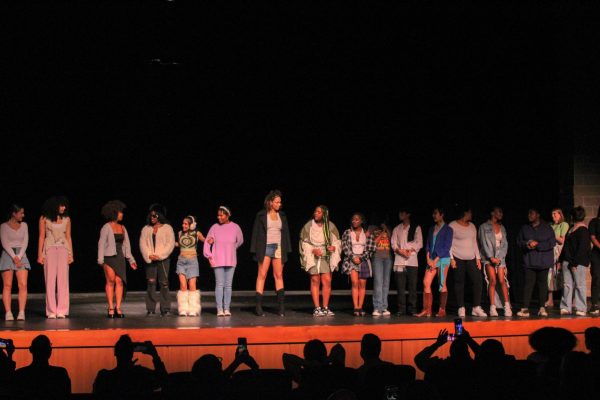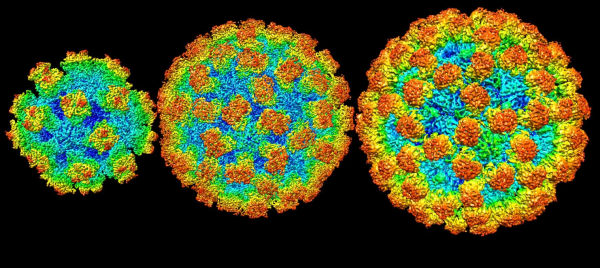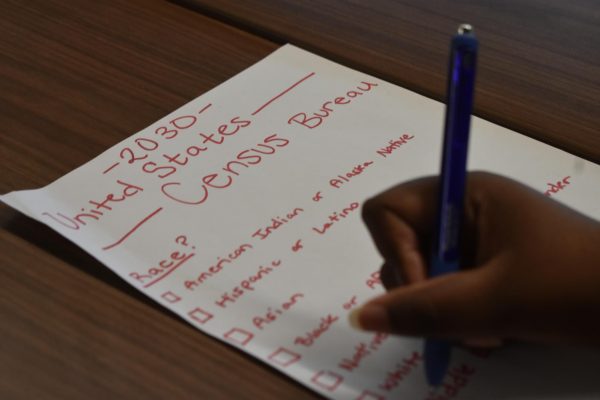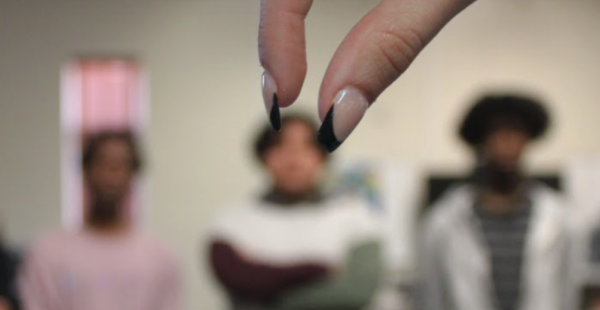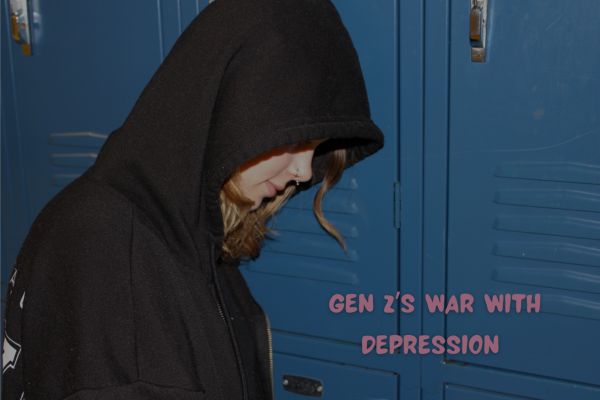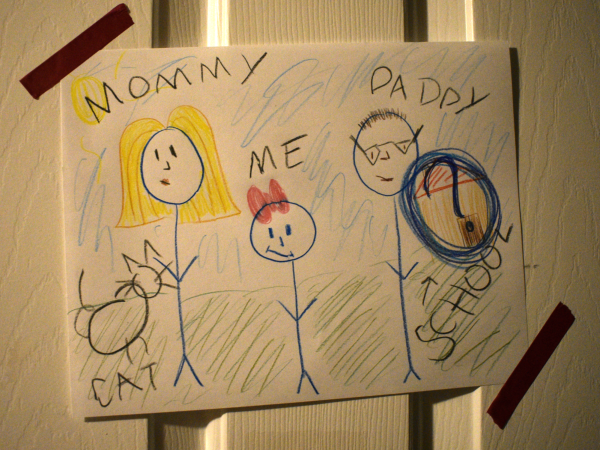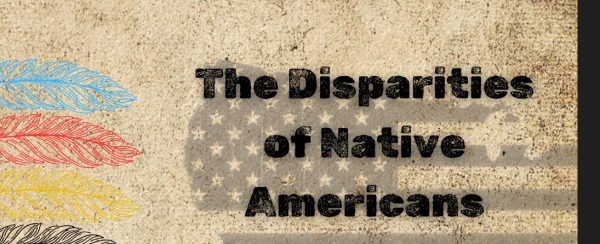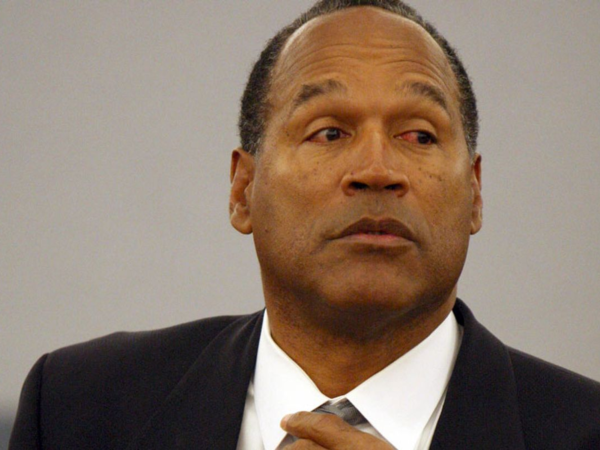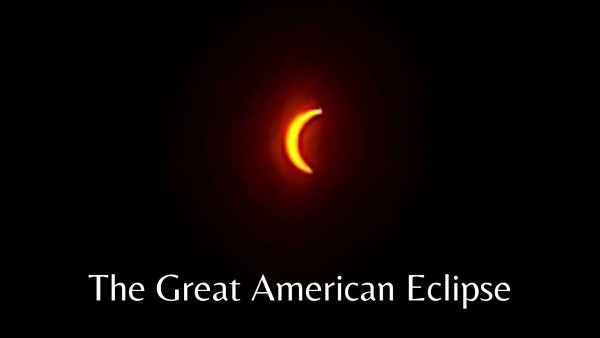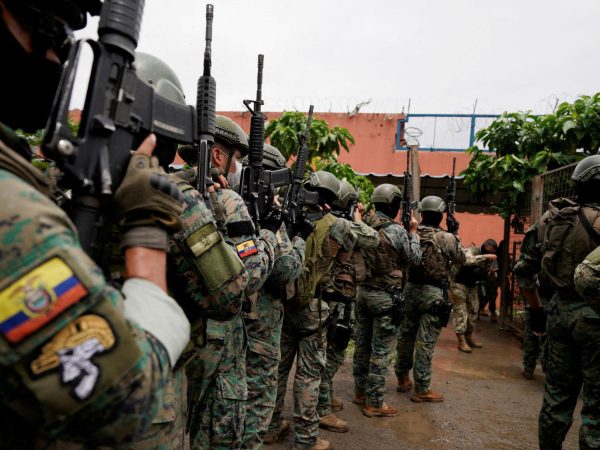Magnet mock admissions night prepares students for application process and decisions
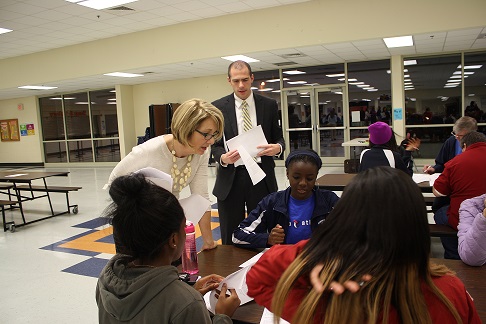
The admissions officer from George Washington University answers a question asked by junior Kiera Elston.
On November 11, 70 NC parents and students participated in Mock Admissions Night, an activity designed to prepare prospective college students for the application process.
“The purpose of the night was to give parents and students an opportunity to see behind the scenes of what goes into making an admissions decision,” Magnet counselor Dr. Brent Shropshire, who organized the event, said.
The audience was presented with a college and its overall description, including its expectations. The group then moved into the cafeteria, divided into smaller groups, and received a sample college application.
“They were able to look at the application, including its transcripts, test scores, essays, teacher recommendations, and so forth in order to determine the eligibility of the student to the college they were told to represent,” Shropshire said.
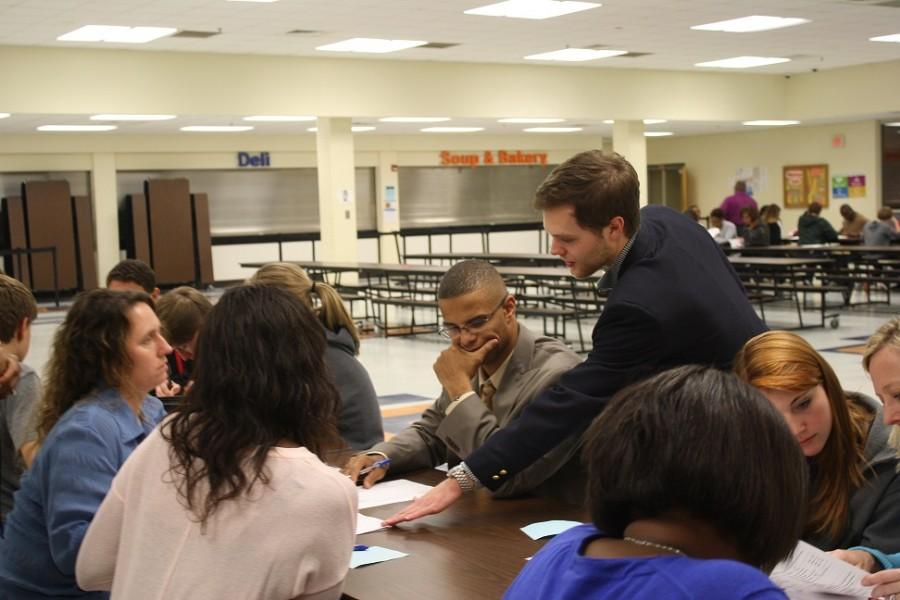
The admissions officer from Emory helps out a NC parent as he goes over the student application.
Five actual admissions officers led the small groups, guiding them through the process, making suggestions about certain areas of interest, and answering any questions from the parents and students.
“I thought it was really cool that they got real admissions officers to help us,” sophomore Ben Baxter said. “There were three from Emory, one from Georgia Tech, one from Spelman College, and one from George Washington University, and they had a lot of helpful comments.”
Once each group reviewed their application, they decided whether to admit, deny, or defer the student. Each group leader then presented the application to everyone and explained the reason for their decisions. The goal was to end with two accepted students, one deferred student, and one denied student.
“When it came to making a decision, he students looked at it from their perspective, more on the GPA and the test scores, whereas the parents looked at it more as a whole, seeing what the student was involved with extracurricularly, what the students wrote about in their essay, as well as the teacher and counselor recommendations,” said Dr. Shropshire.
Once the admissions decisions were reached, the admissions officers invited questions regarding student applications and college expectations.
“One of them said that they really look at your junior year, which at first I didn’t really think was important because hearing that from teachers it didn’t seem real,” junior Danielle Kelly said. “But hearing the same thing from actual admissions officers really told me how important it was.”
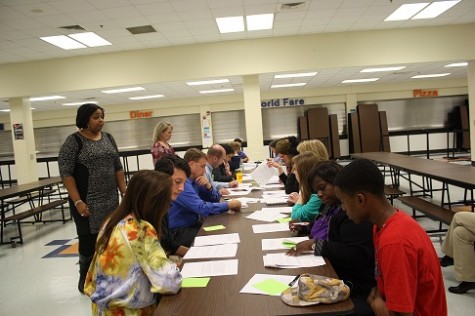
The large group was split into sections, and each section reviewed a separate student application. The invited admissions officer presided over specific tables, answering questions and helping people when necessary.
While Dr. Shropshire admits that anxiety regarding college applications will always exist, he hopes this event will reduce some stress: “They sort of know what they’re looking for now,” he said. “They know that it’s not all black and white, and that there are many factors that go into making an admissions decision, not just GPA and test scores. That was really the main goal of the night.”

Fatima Elfakahany is a junior in high school and...something...for The Chant. She is in Model UN, Debate, and Beta Club. Her favorite sport is soccer simply...






